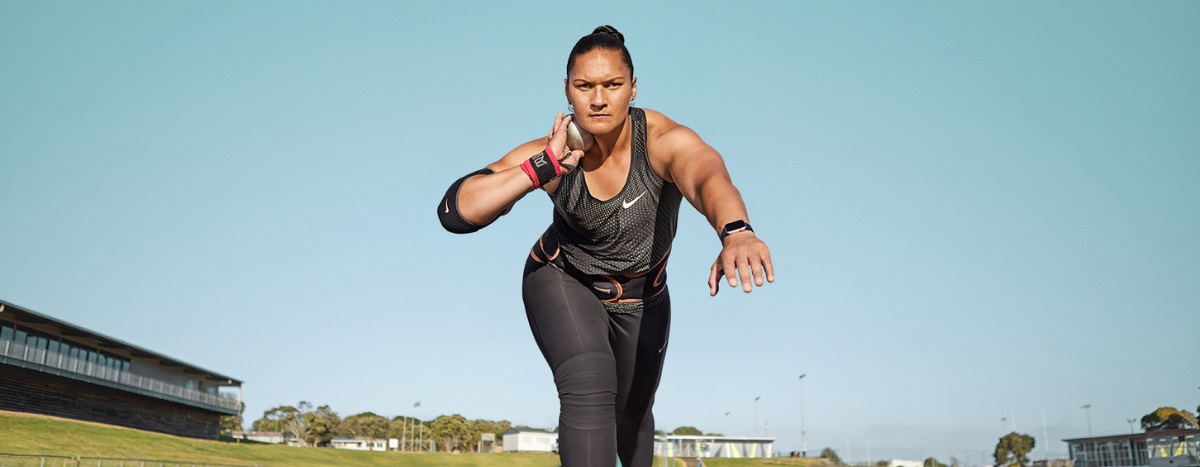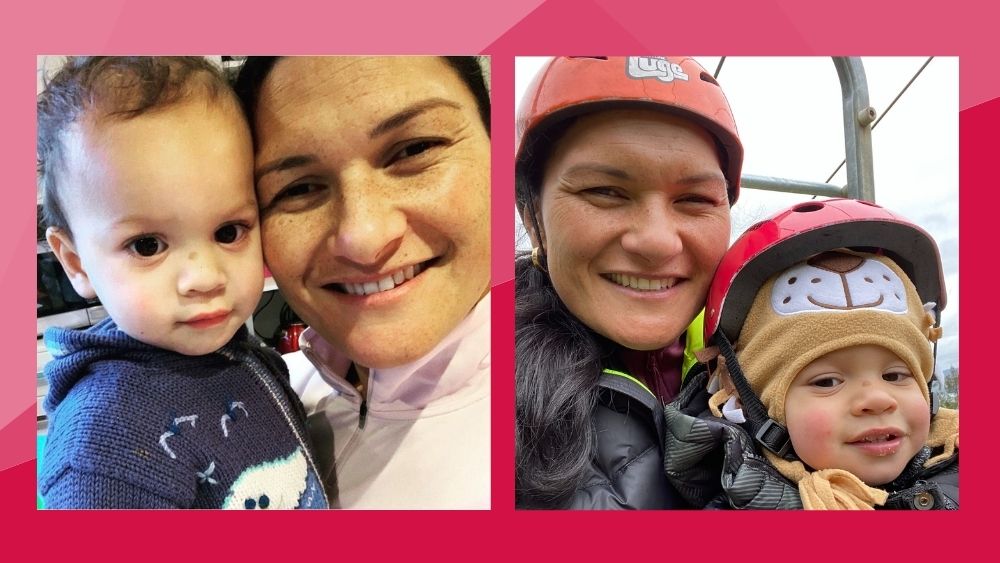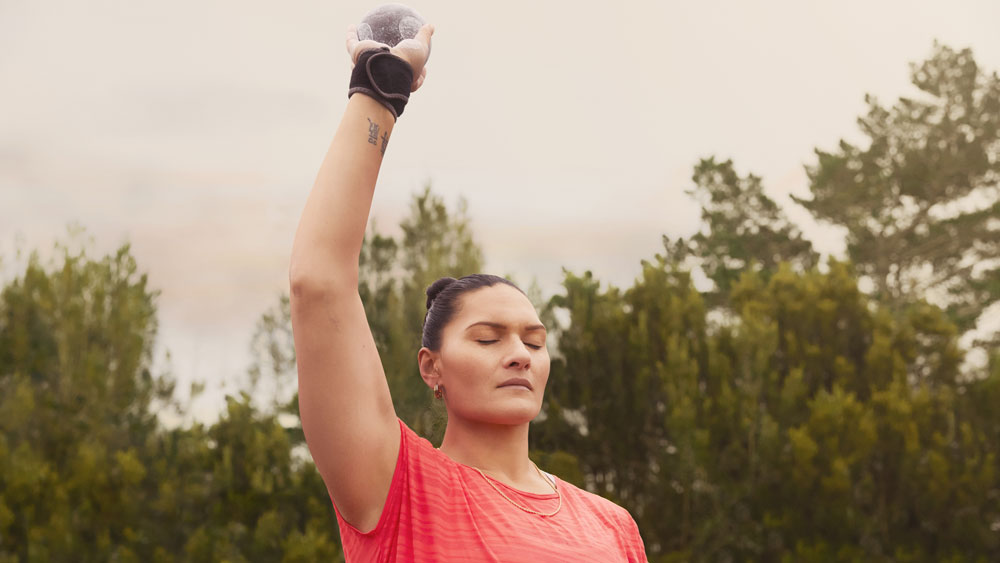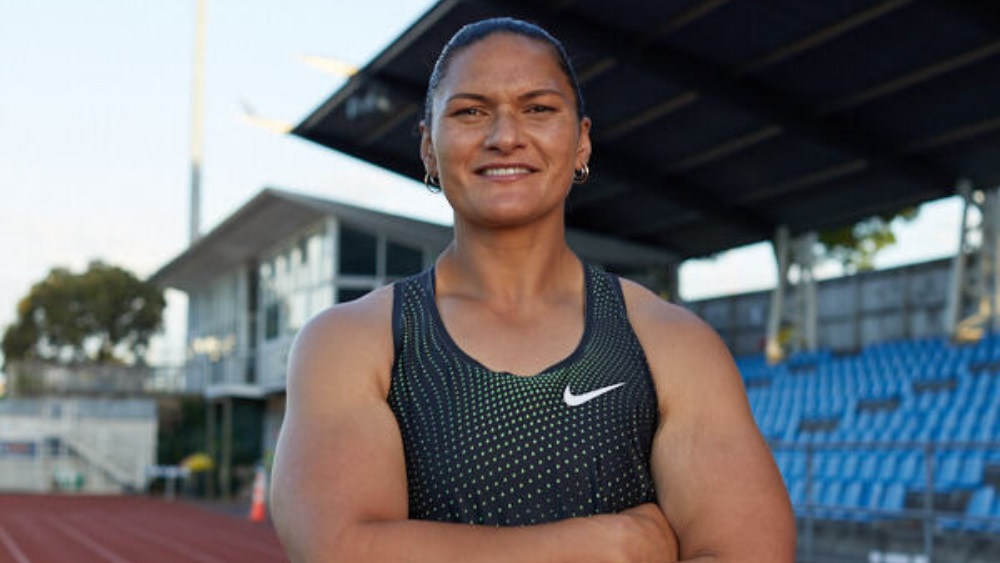In the lead-up to the Tokyo Games, our team had it all mapped out. We’d planned goals, we were training hard, and we were looking forward to the competition. I’d trained incredibly hard after the birth of my second child in 2019. I was in a good physical state. I’d qualified for the Olympic Games in January 2020 – my first competition back and my second throw - and was mentally ready for everything to be done and dusted by the end of the year.
I was at Nationals at the start of March when coronavirus case numbers started to creep up and rumours of a lockdown were being whispered. I’d already thought about what I would need to continue to train from home if New Zealand went into lockdown like so many countries around the world was in. I purchased enough equipment to install a home gym in my garage and managed to have this delivered and set up ready to go luckily the day before lockdown was announced.
Running on fumes
When the news came in March 2020 that the Tokyo Olympics would be postponed, New Zealand entered its very first day of lockdown. I found myself in an entirely new situation.
I now had a whole extra year of work ahead of me, and I was running on empty. We had nothing to look forward to – our team had no excitement, no drive and no morale. We couldn’t go anywhere, and everything was cancelled.
I found myself in a situation where I needed to find my drive again. I needed to create a situation or environment where I could focus, train hard and perform well. But finding that state wasn’t easy
Getting my head back in the game
The time I spent with my kids during lockdown was so precious – we’d found a new routine together and made so many beautiful memories, but my mind was still elsewhere. While the postponement meant I didn’t have to constantly train at a high level, I knew I couldn’t slack off for the sake of my mental and physical wellbeing. I needed to maintain my conditioning until we made it out of the other side, so we could reassess our next steps as a team and what the future looked like.
I reflected over a short period on what I was currently going through – the lockdown, the postponement, the lack of international competitions – and came up with a new goal: to make my family and my country proud.
I knew this meant I’d have to make some lifestyle changes and that it would be an even bigger challenge for my family, but I didn’t want to regret anything when I was at the starting line in Tokyo. I wanted to stand there proudly and know I had given it my best shot. I would put my life, love and my heart on the line for New Zealand, and I wanted to bring my very best to the Games. That was the moment I got my head back in the game.
Seize your moment
It’s easy to wallow in self-pity and it’s difficult to pick yourself up immediately, especially when life throws you a curveball.
It’s absolutely fine to take time to process your feelings. Acknowledge that the situation is making you feel horrible and that it’s placed you in a rut, but don’t stew on it for too long. Rely on your inner circle for support and find a goal to keep going – there's always something you can do, no matter the situation.
Take each setback as an opportunity and act on your plans quickly, or you’ll be plagued with regret later. Stick to the goal you’ve created and, even if you come up short at the end, at least you know you’ve tried your best
Thrive in adversity
Being adaptive simply means being comfortable in an uncomfortable situation. Sometimes, we may not feel like adaptable people, but we’ve already honed that skill without knowing it. We’re currently living in a tumultuous time in our lives, which has already toughened us mentally – even if we haven’t processed it yet.
No one is born as an adaptable person, but life shapes us to be flexible as we grow older. We'll experience things that are completely out of our control but what matters most is what we do next. The roadblocks you face aren’t roadblocks at all – they're detours. All we have to do is find the route around them.






